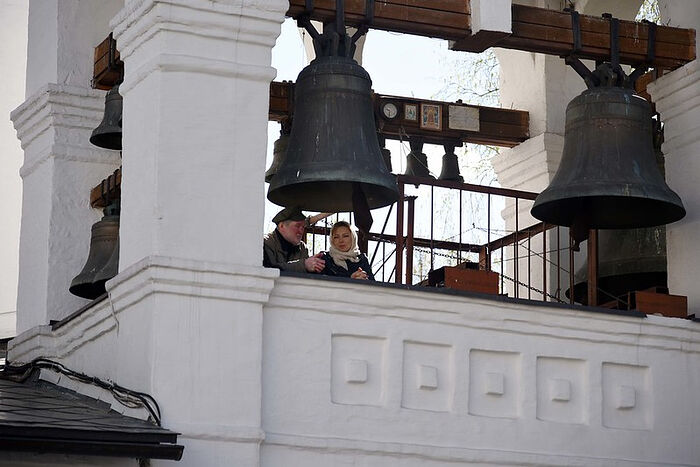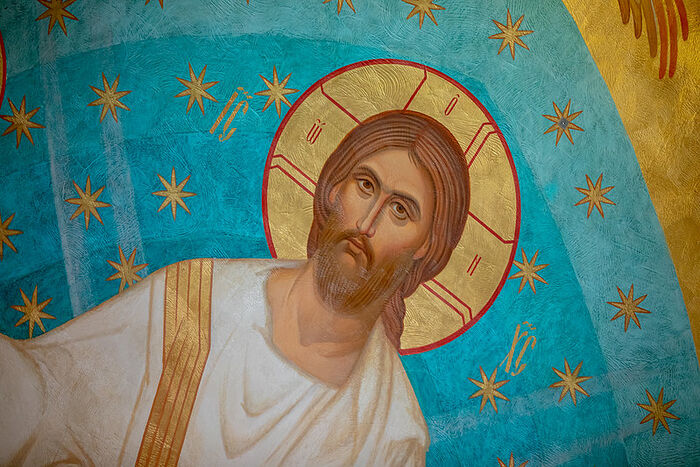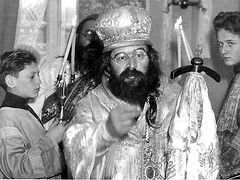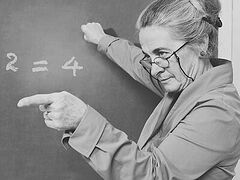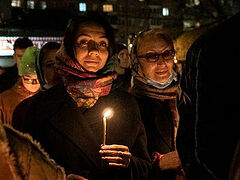Perhaps every priest has his own remarkable Paschal story to share; such a story when you can only say: “Christ is Risen!” Other words just won’t be suitable.
My friend, Fr. Eugene, had such a miracle. I have known about it for many years. From year to year he recalls those events, and each time we can’t help but marvel.
It was many years ago. After the end of the service on Pascha someone called the church and asked batiushka to baptize a dying man at home.
A feast is a feast, but there was nothing to be done. As the youngest cleric, Fr. Eugene went to give him Communion, taking with him the Holy Gifts. He saw an old man lying on a bed. Although he was weak and it was difficult to understand his speech, he was not much like a dying man. His relatives were confused:
“He has been bothering us, saying he is about to die and he must urgently be baptized. He is very worried. And it is very strange: he has always been indifferent to the Church. But he is very old, in his eighties, and often out of his mind. Today he has been pestering us like crazy and has almost fallen off his bed.”
The old man confirmed his desire to Fr. Eugene. He baptized him, gave him Communion almost without confession, since Baptism washes away all sins. The priest just told him about faith, the sacraments and the Gospel. The old man only wept that he had broken off some church door. He did not speak very coherently, but he wept sincerely, so the priest comforted him and went back to the church.
Fr. Eugene testifies that he left the old man in almost perfect health. He even half rose from the bed to see him to the door. In the evening his relatives called the priest:
“Our grandpa Anatoly has died, as he promised! When you left, he lay there and smiled for some time, mumbling time and again: ‘How good!’ Then he fell asleep and passed away without waking up.”
“And then I kept wondering—it’s no coincidence that the Lord granted such a blessed death to the man. He took him on Pascha, after Baptism and Communion, when he was as pure as a baby, forgiven for everything, having tasted the joy of the Resurrection and not having had time to commit more sins,” Fr. Eugene thought. “After the funeral I even talked to his relatives. Maybe the man led a righteous life, albeit unbaptized? It happens that way too.”
But Anatoly was an ordinary man. He could drink and raise his hand against his wife. And in his youth he also helped demolish a church. No, he was not sacrilegious, but everyone went there, and so did he. And yes, he was involved in breaking off a church door...
His grandmother Ekaterina then cried hysterically:
“What are you doing? Have you raised your hand against God?!”
Anatoly was not even baptized. His parents didn’t allow his grandmother to do it. These were times of persecution... But hearing those words of his grandmother, he got scared, turned around and walked away.
So he lived like many of his fellow-countrymen then—nothing special. But there was another story in his life that all his relatives knew.
Once at a logging site a tree was felled and dropped onto him. His leg was injured and he remained lame for the rest of his life. But that wasn’t the only terrible thing. The offender himself slandered him, saying that Tolka [a diminutive form of the name Anatoly.—Trans.] was drunk, so he had supposedly climbed under that tree. But it wasn’t true. However, everyone believed that guy because his father had power. Moreover, Anatoly smelled of alcohol—his companions had poured it into his mouth so that he would not feel so much pain.
Then Anatoly thought about why the Lord had allowed this, if He exists, and why He hadn’t punished the offender. And how could one not think about it? But he immediately brushed aside these thoughts, since he had been involved in the destruction of a church. “I raised my hand against God, as my grandmother said. So it’s better if He doesn’t exist. I’ll be more peaceful...”
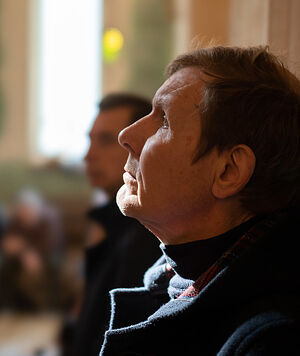 But he bore a grudge against that person for many years. He couldn’t forgive him. Although his offender didn’t need his forgiveness. Everything in his life was going well. They all lived in the same village, with sight of each other. But Anatoly’s resentment made his life miserable.
But he bore a grudge against that person for many years. He couldn’t forgive him. Although his offender didn’t need his forgiveness. Everything in his life was going well. They all lived in the same village, with sight of each other. But Anatoly’s resentment made his life miserable.
And then the son of Victor (that was the name of his offender) contracted measles. He was seriously ill and almost dying.
Anatoly then rejoiced:
“That’s for my injured leg!”
He even went up to Victor’s house and looked inside through the window to enjoy the tragedy... But he saw Victor and his wife kneeling in front of the bed, dark with grief. And Victor was shaking his head from side to side like crazy.
“He felt sorry for Victor, despite all his hatred,” Anatoly’s relatives told Fr. Eugene. “He was even surprised. And he said in his heart:
‘God, if You exist, heal the boy.’ And at that moment he felt that his anger had gone. He had forgiven Victor. He himself said so.”
The boy was then taken to the hospital and survived. Anatoly even tried to greet Viktor, but he only hid his eyes. But that didn’t matter anymore. What mattered is that he no longer bore a grudge against him. It was a load off his mind. As if Someone very strong had taken it and thrown it off.
The years flew by. Victor and his wife both died. Their children moved to the city. But Anatoly and his family all lived in that village. His wife, who had grown old, used to drop in at church just to light a candle, so Fr. Eugene did not know them. But Anatoly didn’t set foot in church and didn’t want to be baptized. His grandmother’s words had probably stuck in his mind: “What are you doing?...” He was afraid that if he recognized the existence of God, He would immediately be punished for that door.
And then, that day, he suddenly felt that the time had come. This is what he explained to Fr. Eugene before his Baptism:
“I must be baptized! I’m dying!”
As I said, batiushka learned the rest from his relatives.
Anatoly was baptized, took Communion and died on Pascha.
“And I believe,” Fr. Eugene tells me from year to year, “that the Lord showed him this mercy for forgiving his offender. Not for some particular virtues, which Anatoly hardly had; and not for a righteous life, which he did not lead. But just for the forgiveness of one offense. Of course, it was not easy—it was a mortal offense. But with God’s help Anatoly was able to forgive. Although it must have been difficult. He sighed a prayer for the sick child, and his heart softened. He took a small step towards the Almighty, in Whom he did not really believe. And the Lord forgave him, opening His arms before him... He even forgave him for breaking off the church door. This is not a trade-off. This is the great power of forgiveness, which opens the way to Heaven for you. It’s like in the prayer ‘Our Father’, where we are expected to forgive if we want to be forgiven. But it is just my personal opinion... A person’s heart is open to God alone. We do not know how Anatoly repented inwardly.”
Why did Anatoly turn to God only before his death? No one knows. Neither does Fr. Eugene. The main thing is that the Lord waited for him for over eighty years, preserving, keeping, guiding and pushing him on... And when time was almost up, He sent him a message: “It’s time!”, and took him straight to Himself—to the Paschal banquet.
“What is this if not a miracle: to be baptized, take Communion, and with Paschal joy in your heart to depart to God?” Fr. Eugene always concludes. “On such a feast when Heaven is open. And to forgive your offender is also a great miracle. A miracle of the resurrection of the human soul.”

